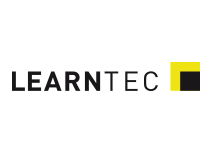"We should use AI potential and remain critical at the same time."
Interview with keynote speaker Lori Niles-Hofmann

Lori Niles-Hofmann has been a learning strategist in the field of Learning & Development (L&D) for 25 years. Her specialization is large-scale digital learning transformations. The Canadian is appearing as a keynote speaker at this year's LEARNTEC. In this pre-interview, she reveals the differences between Europe and Canada in dealing with artificial intelligence, discusses the diminishing significance of job titles and shows how companies can promote diversity.
You have more than 20 years of experience as a learning strategist. What do companies do better today than they did back then when it comes to training their employees?
I still remember well how we used CDs to teach traditional learning content 20 years ago. Today, we have realised that digital media is a medium on its own. That sounds obvious, but it is actually not. We have spent far too much time recreating classrooms or replicating textbooks digitally. We are now aligning learning with the capabilities of digital media to fully harness its potential, rather than vice versa.
What role does AI play in your day-to-day work?
I use AI every day for various tasks, from research to writing. It has made my work much more efficient. For example, I recently converted a white paper into a PowerPoint presentation - it was done in just a few minutes. In L&D, artificial intelligence enables us to open up access to learning and optimise learning processes. Without AI, this was a lot of work and involved a lot of confusing Excel spreadsheets. Despite the advantages, we have to keep data protection in mind. I think we should use the potential of AI and remain critical at the same time.
Are there different approaches to the use of AI in Europe and Canada?
Europe is much more advanced in terms of data protection, especially when it comes to the workplace. Works councils and employee rights have a greater influence on the use of AI than in Canada. Although we also have data protection regulations, Canada lacks clear rules.
In addition, our labour laws are less strict in terms of tracking employee data. In some European countries, there are regulations stating that no emails can be written after working hours. We are not as strict about that in Canada. However, we are moving towards stricter laws. In addition, Prime Minister Trudeau recently announced that two billion Canadian dollars will go towards AI research. Until now, it has mainly been companies in Canada that have been involved in AI. The investment demonstrates a growing commitment from the government. I'm excited to see how this will develop.
You talk about how we need to rethink the training and development of people. One approach comprises the idea of so-called skills-based companies. What does this approach look like?
Skills-based companies pursue the idea of hiring and deploying employees according to their individual skills. Take the job of a barista, for example: a barista in Milan may have completely different skills to a barista at a franchise. It is therefore important to identify employees' specific skills rather than relying solely on their job title. It allows organisations to better develop employees and move beyond traditional job roles.
This requires the continuous collection, classification and analysis of a wide range of data, such as the interests and ambitions of employees and skill gaps in the company. Here as well, AI offers a wide range of support options. Nevertheless, communication with employees remains essential: If somebody looked at my skillset, they could think that I am a perfect match for the banking industry, because I have 15 years of experience here. But I do not ever want to go into banking again (laughs).
More and more companies are realising that a diverse team leads to better work results. How should L&D professionals take increasing diversity into account?
When it comes to diversity in organisations, L&D definitely plays a role. However, I feel a little uncomfortable when companies limit diversity issues to HR, as L&D alone cannot fix systemic changes. To make training and development diverse, we need to start with the content: It is important that people see themselves reflected in the learning content, otherwise they are less likely to engage with it or make connections to it. In order to create more diverse teams, it is also important that organisations address complex issues such as accessibility.
Another aspect to consider is the management level and the messages conveyed in the learning process. Are they diverse, inclusive and reflective? Too often North American or European companies use examples and scenarios that are not relevant or understandable for their employees in other locations. There is an urgent need for action here. At the same time, I applaud companies for leveraging LGBTQ and diversity issues to uphold their values, even in locations where certain minorities have fewer legal rights.
What skills and competences do you think employees will need in the future?
In my opinion, it is more about soft factors. Of course, there will always be important hard skills, but I am not able to foresee which ones will be relevant in ten, twenty or thirty years. Hard skills change quickly. This makes it even more important for L&D professionals to be plugged into those types of technologies and understanding what is coming down the pipeline. We should also encourage qualities such as agility, lateral thinking and curiosity, as these enable employees to react and adapt well to technological innovations.
How can companies support their employees accordingly?
I see so many companies that think that all employees have to become AI experts. That is not the case. Instead of flooding everyone with AI courses, companies should analyse precisely who really needs which skills and how they should be applied. This precise scaling allows companies to use their resources more efficiently and draw on a more specialised workforce. I think companies need to offer their employees specific training and retraining programmes in order to be successful in the long term.
What are you looking forward to at this year's LEARNTEC?
I am particularly looking forward to the face-to-face discussions, which otherwise take place far too often online. There will be lots of interesting people on site with great topics and ideas. Although I would also like to say I am looking forward to practicing my terrible German, but I have to admit that I probably will not be able to (laughs).


